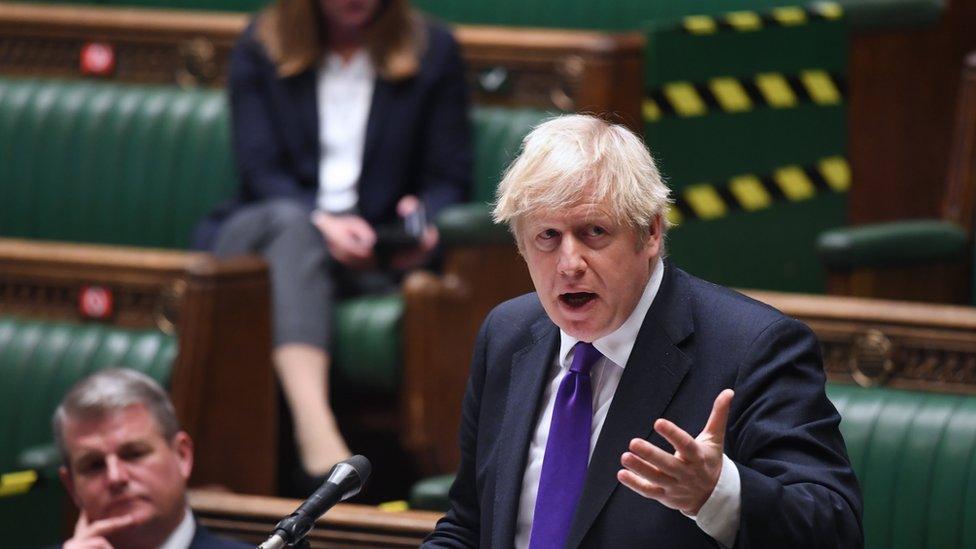Beyond Brexit and Covid: The year ahead in Parliament
- Published
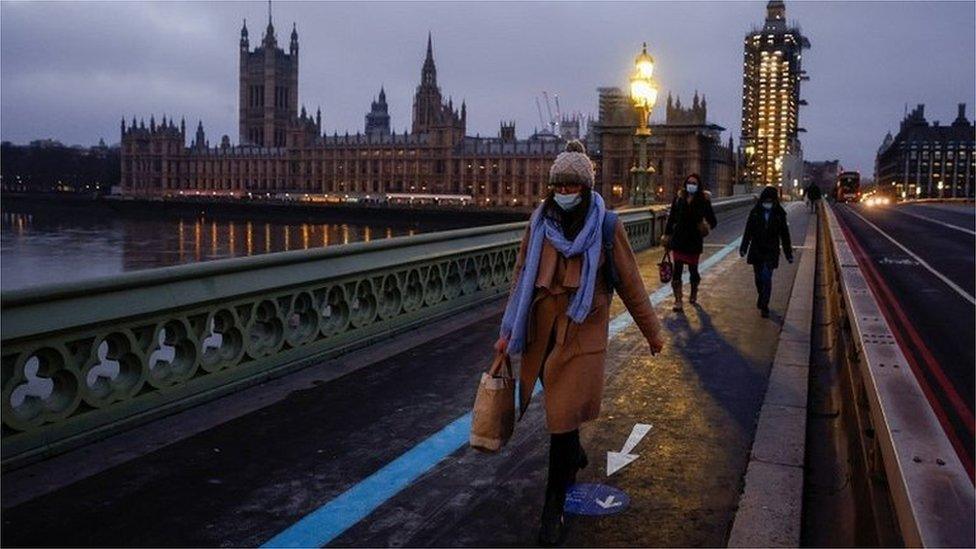
The new political year will not really start on 1 January.
The first few months of 2021 will be about handling the tail end of 2020's Brexit and Covid crises - issues like who gets priority for vaccinations and how restrictions may be loosened.
There will be plenty of loose ends from the December deal with the EU - look out for a memorandum of understanding on regulatory cooperation on financial services, due in March, as one high-stakes example of deals still to be done.
So the European question, which has haunted Conservative prime ministers since Harold Macmillan, and which has ruined the last three, is not quite dead yet.
Quest for treaties
But is it receding into background noise, rather than providing the drumbeat for incipient civil war?
Given the removal of most of the active pro-EU Tories in 2019, and the acquiescence of their last vestiges, I doubt Boris Johnson will face a Europhile version of the kind of long-term guerrilla war that dogged John Major, David Cameron and Theresa May.
He will want to make the most of his new-found freedom of action, not least by striking new trade treaties wherever possible.
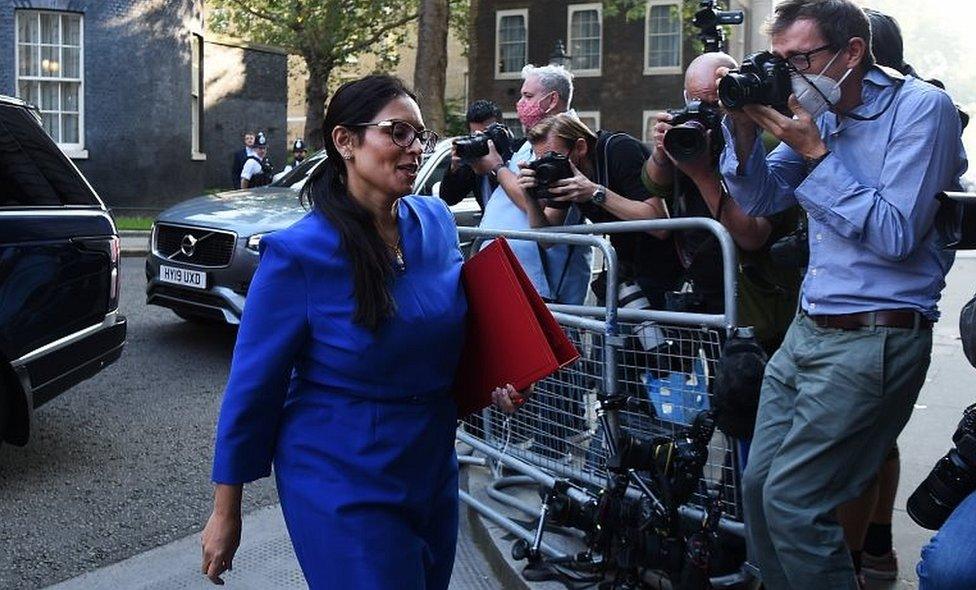
Will Priti Patel get tougher on law and order?
There will, doubtless, be plenty of further squabbles and problems, but then the government will be looking for a reset.
This will probably come in mid-May, when, all being well, a critical mass of vaccinations makes a return to some level of normality possible, allowing (fingers crossed) a State Opening of Parliament with something near full pageantry, to reveal a shiny new agenda to move the nation on from crisis mode and kindle some kind of feel-good factor.
Home Secretary Priti Patel could be a key figure. I'd guess at a combination of tough law-and-order and immigration measures, with the fringe benefit that many of them could wrong-foot Labour with voters they're seeking to regain.
There could be lots of micro-initiatives to generate some visible change in "red wall" seats in northern England and the Midlands.
Social care
Less publicised will be a flotilla of submersible stealth taxes to rebuild the public finances. Keep the big headline taxes where they are, but let the council tax rip and tinker with tax allowances, for pension contributions, perhaps.
Perhaps the post-Covid era will provide the right climate for serious reform of social care - an issue which has occupied the "too difficult" box of successive governments for at least 30 years.
The price tag is daunting and the complexities huge, but, just maybe, the horrors of 2020 might drive real change.
Another interesting legislative treat could be an Espionage Bill, to replace the obsolescent Official Secrets Act.
In an era when a single leaker can release huge volumes of data, and where hacking can be carried out from abroad, the Law Commission has recommended a series of changes - including that the government should not have to prove that leaks of confidential information were damaging. Civil servants could be prosecuted on the basis that they were trying to cause damage.
Expect moves to add a public interest defence for leakers into any legislation.
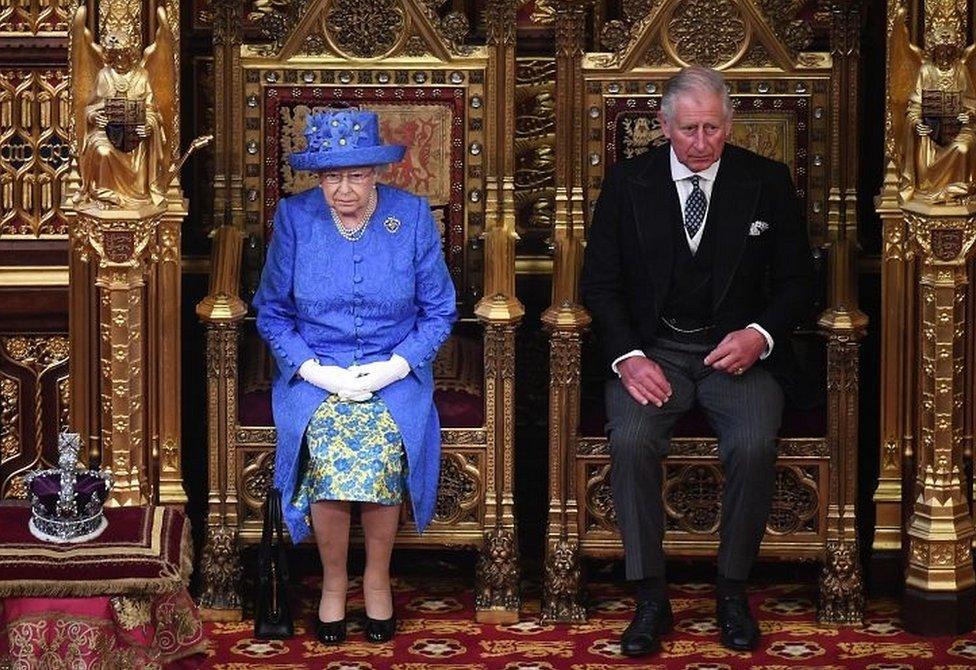
Will Covid measures mean a return to full-on parliamentary pomp?
Before any Queen's Speech (for reasons of purdah), the other big event in May is a massive set of local elections - the ones postponed from 2020, plus a year's worth of pent up by-elections, plus 2021's elections - including of course those for the Scottish Parliament.
These, quite possibly, could pave the way for a second independence referendum, presenting the government with a dilemma over whether the biggest danger to the UK is to hold a referendum, or to refuse to hold one.
Either way, the SNP's Westminster Leader, Ian Blackford, will be hoping to be able to remark during the debate on the Queen's Speech that this will be the last session of the UK Parliament.
The other election results will be dissected in Westminster for indications of how the public view the handling of Brexit and Covid-19.
Red wall signs
In the London mayoral contest, the government will hope to demonstrate some progress.
Meanwhile, Labour will want evidence of a resurgence in the red wall seats which turned blue in the 2019 general election.
There's been plenty of opinion research on voters in those newly Conservative areas, and one interesting finding is that, while there may have been a shift away from the Conservatives in those seats, there is less evidence that they're moving back to Labour.
The underlying attitude of swing voters is still Thatcherite, with a dose of hostility to the Westminster establishment and support for the PM - more for him personally than for his party.
This reflects the topsy-turvy nature of party support in the 2020s, which sees Labour doing better than the Tories among middle-class voters (40% to 36% according to YouGov, 15-16 December),, external while the Conservatives now outperform Labour among working-class voters (45% to 32%).
It's a demographic switch which leaves MPs on both sides of the party divide nervous about their electoral future in formerly safe seats, won before things changed.
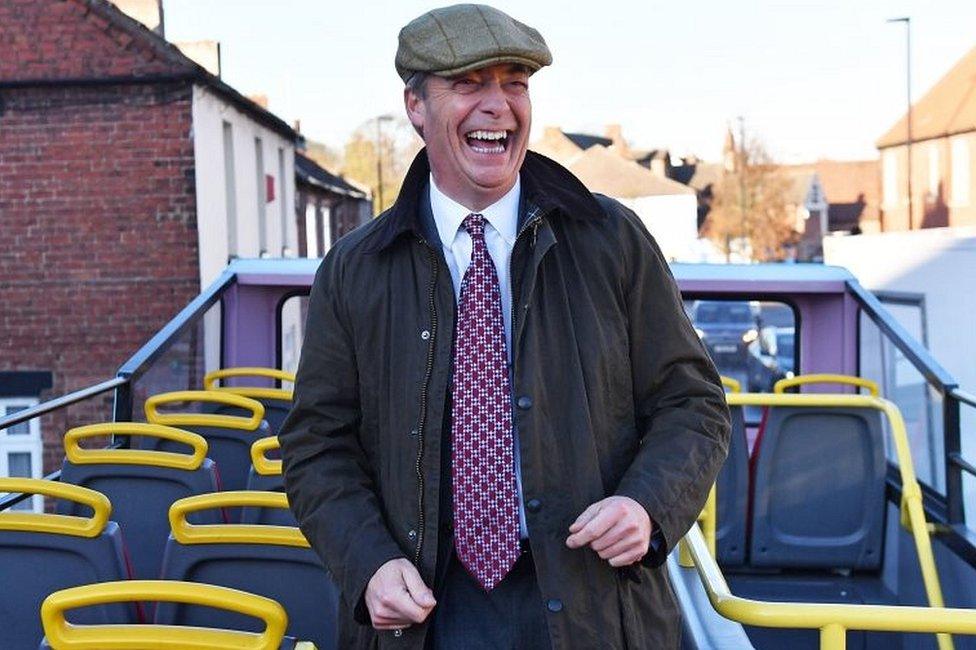
Nigel Farage's Reform Party faces its first major electoral tests
No party has seen its pattern of support change more than the Liberal Democrats - less than half of their current handful of Commons seats are constituencies they held in 2015 - so they will be hoping to provide evidence that they are still a going concern, with a serious presence in local government.
And then there's the Nigel Farage factor. Will the Reform (née Brexit) Party ride a tide of Covid-Brexit angst to success? Typically its, and before it UKIP's, biggest successes have come in the PR voting of European Elections, where national message is all, and local organisation counts for less.
In a mega-set of local elections, the reverse may be true, but a strong showing on the government's Brexit flank will send chills through Conservative hearts.
A wild card comes later in the year with the COP-26 climate summit in Glasgow, a vast meeting of heads of governments, which could produce a dramatic agenda for change - but the kind of change which mainlines into the UK's new cultural-political divide, with some people cheering moves towards green energy and away from all kinds of environmentally unfriendly industries, while others fear for their jobs and gloomily picture the bills arriving on their doormats.
Related topics
- Published30 December 2020

- Published27 November 2020
- Published2 December 2020
